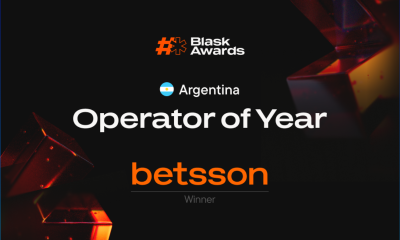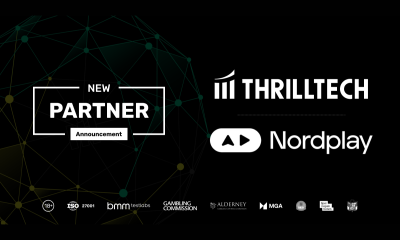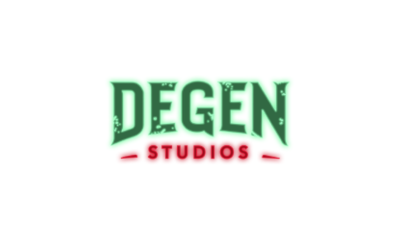Interviews
Exclusive Q&A with Michael Hudson, CEO and Co-Founder of GameBake

We have here with us an entrepreneur who started out quite early in gaming.
Michael Hudson, CEO and Co-Founder of GameBake, talks here about a host of topics:
- His beginnings as a game developer, his quest to develop a ‘fair, transparent, platform agnostic solution” that allows seamless publishing of games across platforms;
- His instinct of “running away from the light” and looking for “fringe areas”;
- What game developers can expect from GameBake;
- And about the gaming industry across the globe.
This is a bit longer than our usual interviews. But it contains nuanced perspectives expressed in straightforward language that the whole industry should look up and take note.
Over to the interview now!
Q. To start off, tell us about your career. Our readers love to hear top entrepreneurs talk about themselves, especially someone who became one at the age of 13!
A. 13 definitely feels like a lifetime ago now! But yes, I started my career in the games industry at 13 although my life as an entrepreneur goes back a little further than that. Since day one, I’ve always tried to make money – some way, somehow, from car washing to selling sweets at school (the demand was there, with only “healthy” options available at lunch times!)
Like they are for many of us, games have always been of keen interest to me, but unlike most, I always wanted to find out what makes a game and how I could make my own. I think it’s those kinds of questions that I’ve always asked that lead me towards teaching myself how to first build websites to host flash games, and then how to actually build the games themselves.
I first started exploring game development with a tool called GameMaker which is still around today, albeit much more developed than when I started with it all those years ago. Eventually I transitioned to working with Flash and building games for websites such as Newgrounds, which eventually led me to the sponsorship/licensing model and how I made my first $200 licensing my first flash game. My next flash game made over $15,000 in fees and that is when I started to take things a little more seriously because big numbers were involved. Considering I had turned down King (yes, the same King that went on to develop the hit we all know and love) I was clearly starting to move towards developing my hobby into a legit business, in a very natural way.
Since then it has been a rollercoaster with ups, downs and many loops, but it has led me to where I am today, with an amazing team (and now, friends), where we can be part of and help build the future of the gaming industry.
Q. How and why did you co-found GameBake? And what does the name signify?
A. GameBake was born out of a genuine business need. As developers, we’ve learned that it’s best to knuckle down and focus on a single product, a single goal that we can all work hard on to achieve great things.
As developers under our previous studio name, we worked on many projects, from hyper-casual games (before that became an industry term) right down to free-to-play titles. This experience was amazing but always positioned us in a similar place. Our publishers wanted the games to be playable everywhere but we only had so much manpower and hours in the day to actually achieve the lofty goals being asked of us. Integrated 3, 4 or 5 SDKs is annoying enough, but having to do that plus integrate the tech of every single platform plus find new services that work on and with these platforms plus making a new specific version for each platform (and all of that with no centralised system to easily and efficiently track everything), well, it wasn’t great, let’s leave it at that.
GameBake was a product of all of this. Our internal struggles and frustrations that led us to seeing a need in the market that, not only we wanted to solve, but many others wanted a solution for, and that is why we pivoted away from a development studio to go all-in with our KILN technology that allows us to open up the whole gaming market to developers globally, no matter how big or small you are.
What does the name signify? Well, we were named Yello at the very start so GameBake was part of our development as we pushed forwards into new markets and started using better technology. GameBake itself doesn’t have a specific meaning behind it, but for us, it describes what we do in one word, which is: baking games with the technology needed for everybody to access new amazing platforms and markets globally.
Q. How exactly does GameBake work? What kind of support can a gaming developer and publisher expect from your company?
A. How the tech works behind the scenes is probably a question more for our amazing CTO, so maybe you’ll find out in the next interview! But the concept is pretty simple really:-
• Upload your APK to GameBake, the very same APK used for uploading to Google Play;
• Check the boxes for the services your game uses; E.g. GameAnalytics, Tenjin, or Firebase, Adjust and so on;
• Check which stores you want to deploy to, e.g. Huawei AppGallery;
• Job done! Our tech (called KILN) takes care of the rest and spits out a compiled version of your game with all the required tech needed to run on the chosen platforms you are looking to distribute to.
Of course, store pages need to be built for each platform and IDs from other services need to be swapped for new IDs from those services, but for the new platforms you go live on. We are working closely with most of the big industry players to try and automate as much of this as possible and we are well on our way to achieving this.
As for what to expect from GameBake, well I would say a fair, transparent, platform agnostic solution that works! If you want to use our tech to make getting to new platforms easier, but want to make partnerships with the platforms yourself (i.e. setup features yourself and so on), that is fine, we are able to facilitate this and will do all we can to provide what you need with who you need. If what you are looking for is a more hands-on approach from us, one where we setup all your games features, run the UA and more then we can also work with you like that as well.
For GameBake, flexibility is key as we see the technology and ecosystem we are building becoming a vital piece of the development puzzle that will enable easy and commercially viable ways to distribute and scale globally.
Q. Changing the status quo of game distribution is not just unglamorous but kind of swimming against the tide too. What motivated you to choose that path?
A. That is a great way of putting it, although I may go a step further and say it’s more like climbing up a waterfall. I have always been interested in the more fringe areas of any industry, especially within gaming. That may be because I can’t help but look at the potential of anything, but it could also be somewhat from necessity – as when launching our own games we never had huge marketing budgets to compete with so I and the team have had to look into areas that were cost effective.
Over the years, what I have found is that everybody always runs towards the light and it’s the ones running away from the light that are called crazy, but if everybody is standing around that light then it very quickly gets blocked. In short – the people running towards the light will find it very hard to find their way towards it. While those running away, and normally that’s in a different direction to everyone else, will normally find themselves in a niche but lucrative area that they can dominate. It’s only once that light starts burning brighter that others pay attention.
This is how I see distribution right now. The bright light is iOS and Google Play on mobile, with many other options, but all faded into the darkness. And now, the bright lights are glowing and the industry is starting to take notice of what is possible outside of the norm. Now it won’t be instantaneous, but we are seeing growth everyday and the more we all work together to open up these platforms and these markets, the greater the industry as a whole – and the more opportunity there will be for everybody globally to enter and become successful.
Q. What are the options available for games developers outside the duopoly of Google Play store and Apple Appstore as publishing platforms? Importantly, what are the attractions for the developers to opt for such off the beaten path destinations?
A. For those developing native games for mobile (Apps, basically) I would suggest looking into the alternative android market. I personally don’t like the word “alternative” as it gives off a vibe of these platforms being “lesser” than Google Play and this frankly isn’t the case, but we need to describe these stores somehow. These stores are low hanging fruit for most people, as if you can compile an APK, which you can, then you can deploy on these stores and the 100s of millions of users that they have.
Now, I’m not saying that this is an easy feat, or an approach that will guarantee success, far from it, but why you wouldn’t secure your brand and IP, and take advantage of these amazing platforms, makes no sense. To me, It’s a no brainer! Often, what we hear from the market is not that developers don’t want to distribute to these stores, but that they’re faced by complexities in being able to achieve this and in making it commercially viable. GameBake is fixing the headache faced by developers by providing an easy route to deploy to these stores, whilst providing the means to be able to leverage the services required in today’s industry to monetise and scale games effectively.
Outside of the App Stores, there are still a wealth of opportunities. In this space, you need to think carefully about the technology you are building your game in, because web distribution generally means HTML5 games, and for many this just isn’t an option. The opportunities on the web are amazing if approached in the right way, but it takes some time to port and for many it just isn’t worth the time and effort commercially.
The same goes for social/instant gaming platforms, such as Facebook, WeChat, Snap and many more. Your games need to be in HTML5 but more importantly, you need to think about how you approach each of these platforms. You can’t just launch a game and expect it to scale, you need to launch it under the platforms features and leverage them to really take advantage of what makes each of these platforms special.
For me, the opportunities are huge but the barrier to entry is also just as big with tons of awkward tech to integrate, porting games being required and the biggest barrier is the lack of services to allow you to properly scale your game but again, that is what we are here for and we are building. If you want to deploy to stores, port to HTML5, explore new markets and leverage your current service partners to do all of this, you can do – with GameBake.
Q. How can games profit from social media platforms like Facebook Gaming?
A. This is something I am asked a lot and the answer is simple because it is no different than a game on the App Store. If your game monetises via Facebook Ads, you can leverage Facebook Audience Network to monetise it, if done via purchases, then you can use the platforms payments system. Nothing drastic needs to change in how you monetise, I mean you don’t need to start asking for donations, because there is no other way.
I guess the real question here is ‘what are the best ways to monetise on social platforms such as Facebook?’. This is a difficult one to provide a rounded answer to that will please everybody but hopefully the below will help:-
• If you are leveraging IAPs then keep in mind that Apple “currently” stops payments being processed on these platforms if playing from an iOS device. We have all seen the recent news stories though so I expect this to change over the next 12 months opening iAPs up across platforms. Until then though, just keep this in mind.
• Hyper-Casual games have an advantage on social platforms as they have such a broad target audience which makes it “simpler” to make these games go viral. That being said, not all gameplay mechanics work and this must be considered when launching on a platform such as Facebook or Snap. Just because a game was a hit in the App Store, it doesn’t mean you can just throw the game as is on social platforms and expect it to work.
• When launching any game on social platforms, just think about how to leverage that platform’s features. For example, Facebook has a tournament mode that allows players to start tournaments that are playable directly from their timeline. With the right setup and design this can be used to get players sharing with friends which can create a viral UA channel to your game. Most social platforms have specific features like this and you need to leverage them to bring users to your game, keep them engaged and coming back and of course, then monetise them.
Q. What can be done to minimize the hurdles of finance and resource that game developers face while optimizing the games for different platforms? How near are we to a software alchemy that makes games publishing-ready for different platforms?
A. Of course I’m going to say that the time is right now – with GameBake! There are no integrations required, meaning access to all supported Android channels via a single upload. We are still working hard to make this even more simple so developers globally can focus on what’s important and that is creating amazing games. Also, HTML5 platforms still have a big barrier to entry for most but again, GameBake is working hard to solve this to provide a way for developers to easily access these platforms and deploy easily to them all.
There is never going to be a way for developers to not put in any work at all. Success comes from hard work and this still rings true when targeting new platforms, be that new app stores opr social platforms, you need to research and find out who the end users are downloading and playing your games on any given platform and then adapt what you do to engage (and of course monetise said users). There isn’t a solution to stop resources being required for game design, monetisation or user acquisition but, how we see it, these are the pieces of the puzzle that studios want to keep control of. It is the deployment that is a pain in the arse mixed with a lack of a real ecosystem, it makes it near impossible to even consider distribution outside of the core stores. This is what we want to and are solving, simplifying and improving the pieces of the puzzle that are needed for studios globally to take advantage of and focus their resources and efforts on creating, managing and scaling amazing games.
Q. How are the games you work with received and played outside the marquee markets of Europe and North America? Any significant development in Asia, Africa, Australia or South America?
A. It’s a hard question to answer as it is so different for every game and you need to tackle each game on a somewhat market by market basis. In general, a game that is enjoyed in the US is likely to be enjoyed in India as well, I mean we are all humans at the end of the day, the difference comes in when trying to find success at scale in specific markets and on specific platforms.
China is probably the best example to use here because the market is huge, but it is notoriously difficult to enter without properly understanding the intricacies of the market itself. By this I mean it isn’t just localising your games text that you need to think about, but how your game looks and plays, how it is distributed to players in the market and how you can monetise it. Markets, like China’s, have restrictions on games and you need to plan how you will tackle all of this to be able to enter.
China is an extreme case, but other markets do need similar considerations when it comes to localisation. But you also need to bear in mind that your distribution strategy for Apple and Google aren’t the number one everywhere. In India, for example, Google Play is big but there are many other platforms that open up 100s of millions of users. Iran is another market with restrictions in place, therefore Google Play does not work there, so working with local stores is your entry into a market of over 70 million. Russia is another market where you need to understand the local platforms and how players play games to really localise a game properly and effectively.
So going back to what I’d said at the start, a great game is a great game no matter where you launch in the world, but making a commercial success of that game in various markets requires some thought, planning and good execution.
Q. Asia perhaps deserves more focus as a gaming market. Which Asian countries do you reckon have the most potential market as games industry markets?
A. I completely agree, Asia is mostly forgotten by western developers and it’s a shame as the potential across the region is massive. China is the world’s biggest gaming market but that is the market everyone talks about so let’s put that to one side as it isn’t an easy nut to crack.
If I were to suggest markets that have the potential for most developers of casual games to grow in the coming months and years, I would look to a market such as Indonesia where the scale you can achieve in that market alone is huge. However, a lot of the time, it just isn’t commercially viable and therefore not thought about, but with the right knowledge and partners you can access more platforms that really open up a market like this and can turn what is a good market for Google Play games into a very strong one for those thinking outside of the box.
South Korea and Japan are both strong markets for specific genres but again, you need to really think about how you approach these markets. In general, Asia as a whole has amazing potential, as well as many other regions globally.
Q. Are tight regulations or lack of clear-cut regulations a bottleneck for growth of gaming outside Europe and North America? We’d love your insight into the role regulations play in the gaming industry’s growth.
A. Regulations always hinder growth, it is the nature of regulations but of course, sometimes they are necessary. China takes it to another level! I can’t even imagine how big that market would be right now if they didn’t have these tight regulations holding it back. I understand the reasons behind why the government has set them in place (although for “Children’s health” isn’t the real reason, in my opinion) but it is holding back the market’s growth which is a big shame.
I do see the need for regulation sometimes though, for example, to stop Apple and Google tightening their grip on the market and forcing us all into paying a huge tax on the games that have been worked on so hard to get them where they are. Therefore regulations can probably help the market grow in certain cases but overall, the less governments get involved in the industry the better for the industry’s growth in the coming years.
Q. And finally, how do you get your hair so beautiful?
A. It’s all natural
Powered by WPeMatico
Interviews
Scaling innovation through the launch of Tequity Publishing
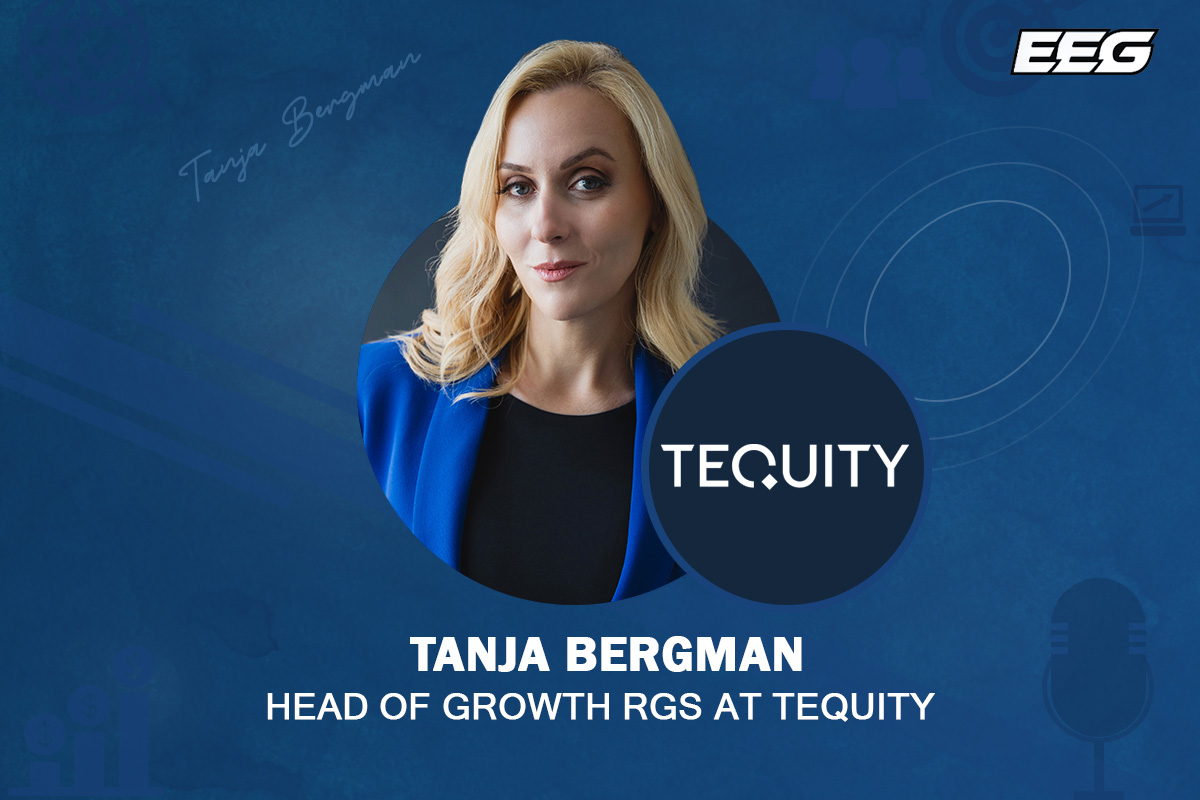
Following the announcement of its new publishing vertical and the successful debut of Royal Drop, we sat down with Tanja Bergman, Head of Growth RGS at Tequity, to discuss how this new arm is set to dismantle technical barriers for ambitious studios and why scalability is the new frontier for the ‘Burst Games’ genre.
Tequity has just officially launched its Publishing vertical. What was the primary catalyst behind this move?
The industry is currently in a fascinating place. There is no shortage of creative talent among studios, but there is a massive technical bottleneck. We have seen so many ambitious studios with incredible concepts – especially those moving beyond traditional slots – who have been getting bogged down in terms of getting those concepts out into the marketplace.
The catalyst for Tequity Publishing was simple. We wanted to break down those technical barriers. By handling the infrastructure, distribution, and compliance frameworks, we allow studios to do what they do best, which is build outstanding games. It’s about speed-to-market without compromising on the quality or the vision of their content.
The launch coincides with the release of Royal Drop. How does this game, and the partnership with Mirror Image Gaming and The Fortune Engine, showcase what Tequity Publishing is all about?
Royal Drop is the perfect proof of concept. It’s a collaboration that highlights three important pillars of modern game delivery. You have Mirror Image Gaming bringing that fresh, video-game-influenced Burst Games energy, The Fortune Engine provide the math tools and templates, and Tequity Publishing offers the global scale and distribution pathway.

It shows that when you remove operational friction, you can create a game-first experience that appeals to a new generation of players who want something more interactive than a standard 5×3 reel.
Tequity Publishing offers two models: RGSaaS and RGS-to-RGS. Can you walk us through the strategic benefits of each?
Flexibility is key, because no two studios are at the same stage of their journey. The RGSaaS model is our full-service offering. It’s designed for studios that want to focus 100% on the creative side. We provide the entire infrastructure and publishing framework and it is essentially a business-in-a-box for game creators.
The RGS-to-RGS model is a more streamlined, tech-first approach for studios that already have their own RGS but lack the distribution muscle. It allows them to plug into our growing operator and aggregator network instantly. Both models are built on the same philosophy: helping studios reach parts of the market they otherwise couldn’t access on their own.
You mentioned reaching new generations of players. How does this vertical specifically empower studios to innovate in ways they couldn’t before?
When a studio is concerned about how they are going to integrate with a multitude of different operators or how to navigate complex jurisdictional requirements, they tend to play it safe. They stick to what they know.
By taking that weight off their shoulders, we give them the opportunity to be brave. Studios like Mirror Image Gaming are pushing the boundaries of modern iGaming, taking influences from the video game world. This is exactly what the new generation of players is looking for. We provide the scalability so that these niche, innovative ideas can achieve mass-market impact.
It’s been a busy period for Tequity, following the success of your Originals series and the iBankroll partnership. How does the Publishing vertical fit into the broader Tequity roadmap for 2026?
It’s all part of becoming the ultimate technology partner for the gaming industry. Whether it’s our streamer-friendly Originals or our Bankroll-as-a-Service offering, the goal is to provide scalable, customisable solutions. Tequity Publishing is the natural evolution of that mission. We aren’t only providing the tools anymore, but also the pathway to the player. Looking ahead, you can expect a series of further launches through our three-way collaborations. We’re proving that the barrier to entry for innovation has never been lower.
Finally, for studios looking to scale quickly, what is your main message to them?
Don’t let technical noise drown out your creative signal. If you have a game concept that breaks the mould, you shouldn’t have to spend years building the distribution architecture to get it seen. That’s what we’re here for. We want to help you launch at a speed and scale that matches your ambition, so that you can make a significant splash in the industry.
The post Scaling innovation through the launch of Tequity Publishing appeared first on Eastern European Gaming | Global iGaming & Tech Intelligence Hub.
BetMGM
Breaking America with BetMGM
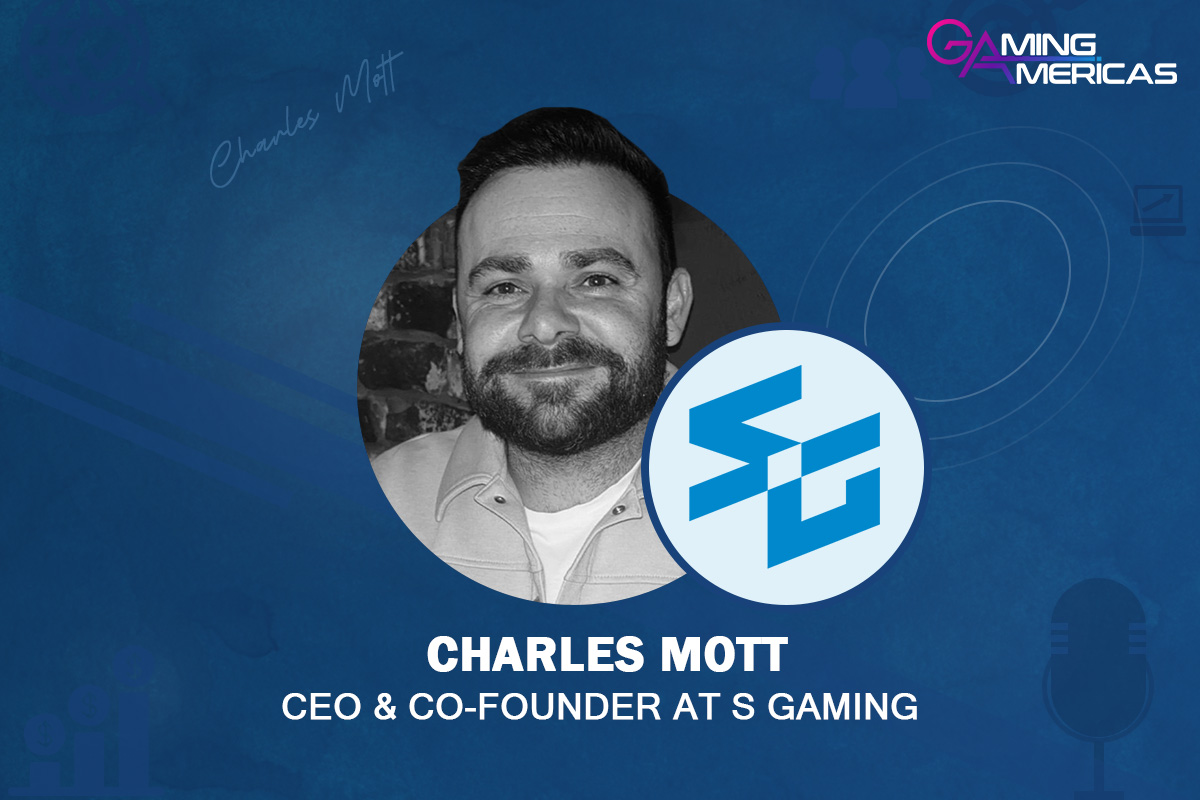
We speak to Charles Mott, CEO & Co-Founder at S Gaming, about the provider’s move into the US market with BetMGM and why more casual gameplay hits the mark with players stateside
Congratulations on your deal with BetMGM in the USA. Why is this such a milestone market launch for S Gaming?
The deal with BetMGM marks our hotly-anticipated launch in the US market, and sees our games go live to players in core regulated states such as New Jersey, Pennsylvania, West Virginia and Michigan. We see huge potential for our content in the North American market, and to make our debut with such a high-calibre operator is a testament to this. The US is still just finding its feet as a regulated online casino market, and our games, with their focus on sustainability and high entertainment, are the perfect fit for audiences who are used to land-based slots and are increasingly moving online. They are simple, easy to understand and play, and ultimately deliver tons of fun over longer playing sessions – just like the slot machines found on the floors of casinos in Las Vegas and beyond.
Just how important was it to go live with a tier-one operator like BetMGM? And how will the deal allow you to quickly build momentum in the US?
It’s mission critical. Going live with BetMGM allows us to build immediate trust with players, tap into a large and loyal playerbase, and simultaneously enter multiple regulated iCasino states at the same time. Now that we are up and running with BetMGM, we are turning our attention to striking partnerships with other operators active in the market. It’s pretty much the same blueprint that we’ve followed in our home market of the UK where we are now live with all but a handful of brands – something we have been able to achieve in a little over two years. We know the US is a slightly different market, but we are confident in our approach to game development and, as we gather more data on how US players interact with our games, will use this feedback loop to guide our product roadmap going forwards so that each title is better than the last and more suited to the preferences of US players.
You mentioned that your games are aimed at more casual players. How does this align with the preferences of US consumers?
If you walk onto the gaming floor of any Las Vegas casino, you’ll see row after row of slot machines. Increasingly, these machines are designed to keep players entertained for longer through gripping gameplay and regular wins. A lot of online slot content delivers high risk/high reward gameplay, where players can quickly clear through their balance as they hunt down big wins – wins that don’t land all that often. In a market where operators care deeply about retention and lifetime value, games that keep players spinning for longer really matter. Our approach to producing sustainable, fun games for players in the UK and Europe has allowed us to not only stand out but to engage players at scale, and we are confident players in the US, especially those who enjoy land-based slotting, will also be drawn to them at scale.
Has launching in the US been a major undertaking for S Gaming, or did it prove to be plain sailing for the most part?
When planning our move into the US market we identified two routes. We have our own remote game server, so we could build on that, secure licences in each state we wanted to enter, and then deploy our content directly with operators. The other option would be to work with a third-party RGS provider that already has the licences and integrations we needed. While the first option might sound like the best, in reality, especially for a smaller studio, the cost of and resources required for securing individual state licences can be prohibitive. So instead, we joined forces with Gaming Realms as they have the cutting-edge RGS and licences (in both the US and Europe) we were looking for. This means we simply need to build a US version of each game on the Gaming Realms RGS and can then deploy content with the wide range of operator partners they are connected with in regulated iCasino states across the US.
Tell us more about the initial run of games you’ve launched with BetMGM.
We’ve launched the partnership with Barnyard Bash Chicken Chase which will be followed by Triple 7 Jackpot in February and Cat and Mouse Collect in March – with one new game a month to follow as we build out our US portfolio. If players were to try just one of our games, it would be Barnyard Bash Chicken Chase. It gets players clucking as they spin the reels, collect Eggs and add them to the growing Nest – the more eggs collected, the bigger the Nest Egg becomes. Not only that, Eggs can randomly activate the matching colour-coded Nest Egg and award entry to the Chicken Trail feature, drop Egg-stra Free Spins or lay an Instant Prize.
But once they’ve tried it, they’ll definitely want to take Triple 7 Jackpot for a spin. This classic slot is dripping in neon action – the Triple 7 feature is always on screen but is locked until a spin lands three Bonus 777 symbols. This unlocks the feature with on spin awarded, giving players a shot at the 500x Jackpot prize. Free Spins are also up for grabs with seven Free Games awarded when three Scatters land in the base game.
Finally, Cat and Mouse Collect is a playful, feature-rich slot built around a simple but engaging Collect mechanic. Players pin the reels, collect up the cheeses and feed the hungry mice until they’re fit to burst. Green plates will serve up an instant prize, Blue will start the wild and wacky Cheese Chase and Red dishes out some feisty Free Spins. With regular feature triggers and plenty of on-reel interaction, it’s designed to keep players engaged from spin to spin without relying on extreme volatility.
What does success in the US look like for S Gaming over the next 12-18 months?
Success for us isn’t about one big hit, it’s about becoming a trusted, widely-distributed supplier in regulated iCasino states. Over the next year we want to significantly expand beyond BetMGM, roll out a steady pipeline of US-optimised titles and build the kind of player data and
operator relationships that let us grow sustainably. If players in New Jersey, Pennsylvania and Michigan are regularly choosing S Gaming titles as part of their core rotation, then we’ll know we’re really breaking into the market.
The post Breaking America with BetMGM appeared first on Americas iGaming & Sports Betting News.
3 Fortune Trees.
Kendoo interview: Can stability be the new innovation?
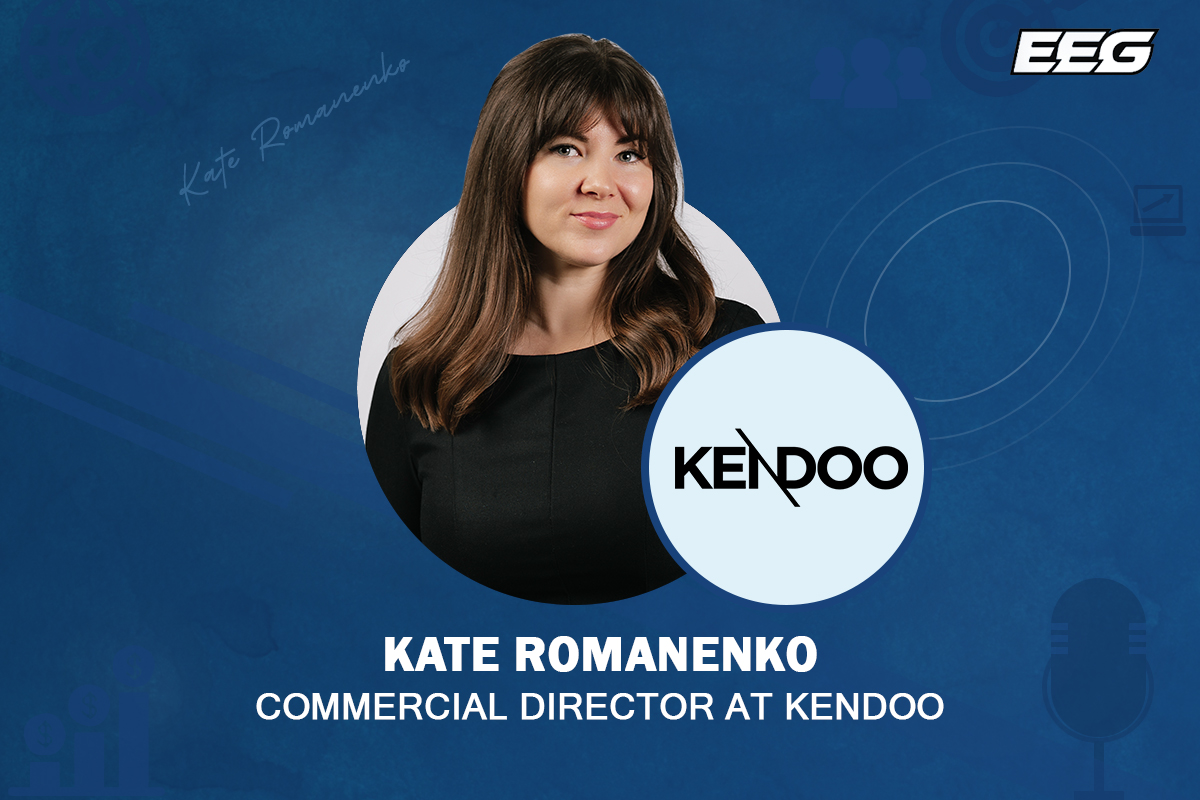
What innovation consists of within the slots industry is often debated. While there are often calls for more groundbreaking features to be introduced, the reality is that the progression of trusted and popular concepts is what drives the industry forward with new releases.
We caught up with the Kendoo’s Commercial Director, Kate Romanenko, to understand more on how long-term retention is often underpinned by controlled evolution of proven concepts, as shown in the company’s success over the past year.
In an industry driven by novelty, why do you think long-term consistency is becoming just as valuable as innovation?
In the competitive iGaming market, everyone is obsessed with “what’s next,” long-term consistency has become a signal of trust. Operators are increasingly cautious: they want games that perform predictably over time, not just those who grow only on launch. Controlled evolution, like we showed with 3 Pots and 4 Pots games, such as 3 Fortune Trees, 3 Gates of Pyramid, 4 Egypt Scarabs etc., proves that you can refresh mechanics and visuals without breaking what already works. Innovation still matters, but when it’s backed by performance data and retention, it becomes scalable, sustainable value rather than short-lived hype.
How does Kendoo ensure technical and gameplay stability across its growing portfolio, especially as it scales into new markets?
At Kendoo, we build on a select set of well-tested core mechanics, evolving them thoughtfully rather than introducing unproven systems. Each game reflects our research, experience, and deep understanding of player needs. This approach lets us expand into new markets without compromising reliability, delivering operators consistent performance and players a smooth, familiar experience they can trust.
What role does reliability play in building strong partnerships with aggregators and platforms?
Reliability is the foundation of trust with aggregators and platforms. When integrations are stable, launches are predictable, and games perform consistently, partners can scale with confidence. For Kendoo, reliability reduces operational friction on their side, fewer incidents, faster rollouts, and clearer performance expectations. Over time, this turns a supplier relationship into a long-term partnership, where growth is planned together rather than driven by constant risk around new releases.
Do you think players are beginning to value dependable, well-balanced games over constant experimentation?
Players enjoy novelty, but they return to games that feel fair, familiar, and well-balanced. Constant experimentation can create friction, while dependable mechanics build confidence and habit. That’s why evolved formats with proven performance tend to retain better: players know what to expect, and that reliability turns curiosity into long-term engagement. For example, taking mechanics like Pots, which originated in land-based casinos, and successfully adapting them for online play.
Can you point to a Kendoo title that’s become a steady performer over time and what that tells you about what players really value?
A clear example is 3 Fortune Trees. Since launch, it has consistently driven strong retention and engagement across markets, with an average of 500 bets per player, which is excellent. The game demonstrates that players value Pots mechanics and reliable, well-balanced gameplay over flashy, one-off features. Its engaging mechanics, popular theme, and premium art and animation all come together to create a game that players love to play.
The post Kendoo interview: Can stability be the new innovation? appeared first on Eastern European Gaming | Global iGaming & Tech Intelligence Hub.
-

 BetPlay4 days ago
BetPlay4 days agoBlask Awards 2025: Betano, Caliente, BetPlay, Betsson and others define Latin America’s iGaming landscape
-

 iGaming4 days ago
iGaming4 days agoMajestic Claws Hold & Hit leaps into Spinomenal’s slots portfolio
-

 Latest News4 days ago
Latest News4 days agoThrillTech partners with Nordplay Group to launch ThrillPots across Nordic-facing casino brands
-

 Canada4 days ago
Canada4 days agoComeOn Launches New Marketing Campaign in Ontario
-

 DEGEN Studios4 days ago
DEGEN Studios4 days agoDEGEN Studios brings Wild West chaos to the reels with Sunset Showdown
-

 Brightstar Lottery PLC3 days ago
Brightstar Lottery PLC3 days agoBrightstar Lottery Delivers Industry-Leading Sales Force Automation Solution to Ontario Lottery and Gaming Corporation
-

 bingo halls3 days ago
bingo halls3 days agoBingo Halls and Casinos in Colombia Increased Their Contributions to Healthcare System by 9.3% in 2025
-

 Boomerang Partners4 days ago
Boomerang Partners4 days agoBoomerang Partners highlights from iGB Affiliate Barcelona 2026: The Sports Marketing & Betting Calendar 2026 presentation, sports activations and the ‘Best Live Event Marketing Campaign’ award




